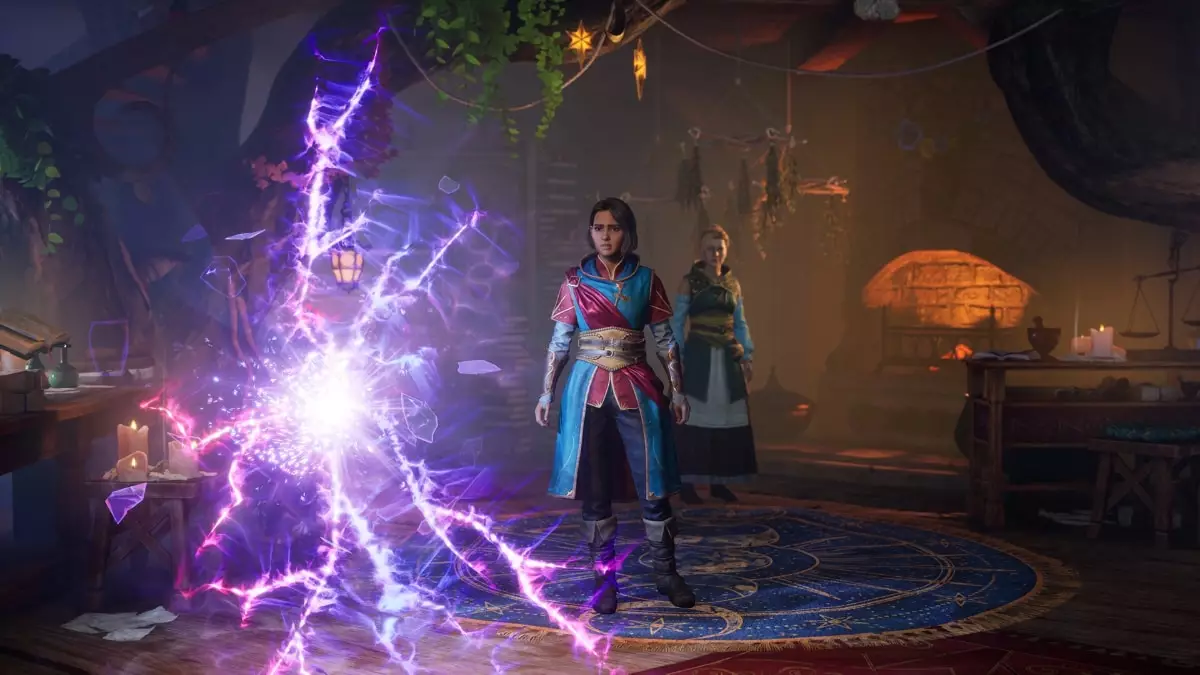With the impending release of the Nintendo Switch 2, Electronic Arts (EA) has introduced a feature that could revolutionize multiplayer gaming: GameShare. This allows two players to share one game copy over a local wireless connection. While this innovation promises to enhance player interaction, it can also present challenges for both developers and gamers alike.
First, let’s unpack the significance of this feature. GameShare is aimed at creating a more communal gaming experience, allowing both Switch 2 and original Switch owners to engage with the highly anticipated title Split Fiction. This co-op game from Hazelight is expected to create a buzz among players longing for a shared experience, yet the underlying logistics raise questions. Can this feature indeed operate seamlessly when linked with two different console generations?
Though theoretical collaboration sounds promising, its execution may be riddled with hiccups. Hardware disparities can lead to varying performance capabilities, and issues of compatibility may arise. The community of gamers thrives on ease of use and accessibility, which makes one wonder if EA’s ambitious expectations could backfire.
Contradictions in Compatibility: A Mixed Message
Contradictions abound when one examines the intricacies of how GameShare functions alongside Nintendo’s established policies. Nintendo has stipulated that only Switch 1 compatible games can be shared from a Switch 2, leaving many to grapple with the implications. In EA’s own release strategy, Split Fiction is exclusively launching on the Switch 2, raising eyebrows about the compatibility declaration.
This contradiction raises concerns regarding market communication. EA presents a vision of inclusivity and communal gaming, yet the reality may be far from that with its restrictive compatibility policies. It reflects a broader issue within the gaming industry where marketing claims can often clash with technical limitations, muddying the waters for potential buyers. Gamers need clarity to make informed purchasing decisions, and messages that do not align can lead to contempt and disillusionment.
Friend’s Pass: The Stake in Community Engagement
One bright spot in this announcement is the introduction of the Friend’s Pass feature. By allowing a player who owns the game to invite a friend, only one of whom needs to purchase it, the model reflects a progressive approach to community engagement. It exemplifies a shift towards shared experiences in gaming—an essential step in a segment that has often been criticized for being insular and exclusive.
Furthermore, with the integration of cross-play, players will have the opportunity to join forces across various platforms, including PC and Xbox Series X/S. This leveling of the playing field could indeed solidify Split Fiction’s standing as a pivotal multiplayer title that encourages collaboration, regardless of hardware choice. The potential here is enormous, heralding a departure from traditional competitive play and towards a more unified gaming culture.
The Pricing Conundrum and Market Implications
However, with pre-orders starting at $49.99, one must consider the strategic implications of pricing in the gaming market. In a landscape increasingly dominated by subscription services and free-to-play models, the pricing for technology that may ultimately feel half-baked could alienate potential customers.
In a center-wing liberal framework, consumer choice and equity in a digital space are paramount. EA’s pricing model must reflect a conscious understanding of individual financial circumstances. While some might view this as merely a launch price, it is essential for developers to remain vigilant about playing into consumer fatigue.
This dilemma reiterates the critical need for balance within the gaming industry—where innovation should not solely come at the expense of accessibility. Trust must be fostered between developers and players, built upon transparent communication and fair practices.
At the intersection of innovation and fairness, Split Fiction’s launch on the Switch 2 embodies both hope and trepidation. While the features promise a revolutionary way to experience co-op gaming, they illuminate deeper systemic issues within the industry that require critical attention. The future of gaming lies not only in groundbreaking features but also in the equitable practices that ensure every player gets a fair shot at engagement.


Leave a Reply